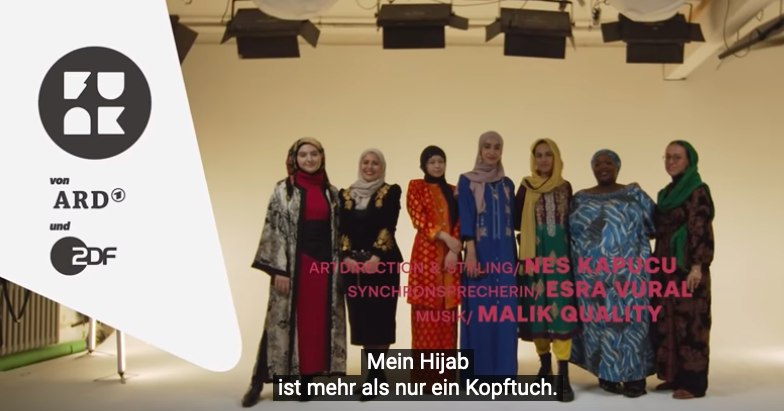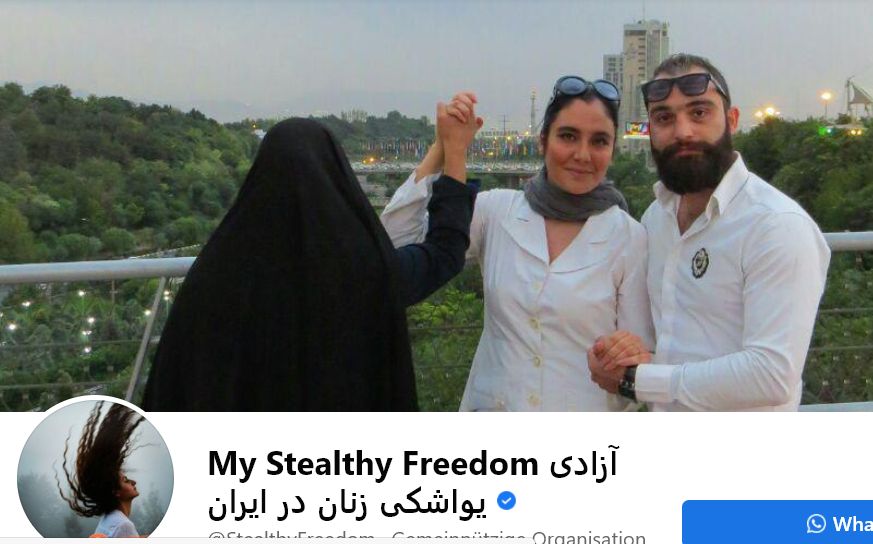#World Hijab Day führt zu Kontroversen in islamischen Ländern

Am Hafen von Bizerte, Tunesien, Bild: Thomas v. der Osten-Sacken
Am 1. Februar findet der so genannte #World Hijab Day statt. Inzwischen haben vor allem Aktivistinnen aus dem Iran deshalb einen No Hijab Day alternativ ins Leben gerufen.
In Deutschland erschien im Auftrag von ARD und ZDF ein Spot, über den Hannah Wettig schreibt:
Das ist ein Werbe-Video in der Machart wie uns sonst die Regierung erinnert, uns anzuschnallen, Kondome zu nutzen oder nicht rassistisch zu sein. Bei solchen pädagogischen Maßnahmen wird am Schluss das entsprechende Ministerium genannt - und das ist irgendwie demokratisch zustande gekommen und hält sich auch meist an die Ideale des Grundgesetzes. Hier sind nur die Logos von ARD und ZDF eingeblendet. Das öffentlich-rechtliche ergreift also von sich aus eine pädagogische Maßnahme, die Frauen das Kopftuch als besonders frei und feministisch empfiehlt.

Wie umstritten dieser Tag auch in der so genannten islamischen Welt ist, darüber berichtet Debbie Mohnblatt in Media Line:
On February 1, the ninth annual World Hijab Day will be marked. On this day, women across the globe, Muslim and non-Muslim, are encouraged to wear a hijab. The day started as an initiative to fight Islamophobia. Regardless, many Muslim women expressed discontent with the campaign, saying the custom is imposed on many of them, and should not be celebrated.
In Afghanistan, for example, women are protesting in the streets against the Taliban government’s regulations restricting their rights, including the obligatory wearing of the hijab. There have been mass protests in which some women take off their burqas and burn them in public places as a sign of resistance. (...)
A lot of these women feel that the Taliban is using the burqa as a mechanism to isolate them from the social order, and that is why some of them took off their burqas and burned them during the demonstrations, she said.

Zaryab Paryani and Tamana Ibrahimi, two women who did just that, were taken away from their homes in the middle of the night by the Taliban, and their location is unknown, Stanikzai said. (...)
Social media plays a vital role in this controversy. It has seen activism for and against the use of the hijab, including extensive debate about World Hijab Day and No Hijab Day, and the #LetUsTalk and the #DressedNotOppressed campaigns.
Yasmine Mohammed, a Canadian writer and women’s rights activist, shared her story with The Media Line.
Mohammed was raised in a Muslim family in British Columbia and her parents divorced when she was young. Her mother remarried, becoming the second wife to a very religious man who forced Mohammed to wear a hijab from the age of 9. “Everything in my life changed when she let him into our lives.” (...)
Niloufar Momeni lived in Iran for 16 years and now resides in Canada where she works as a sports journalist, also told The Media Line about being forced to wear a hijab during her childhood.
No woman in Iran is given a choice regarding the hijab, she explained. “They’re forcing their ideology on you.” She added, “It’s not right to force someone to do something for the rest of their life, not by your father, not by your family, and certainly not by the government.” (...)
Many of these women who took off the hijab have things in common. All of them mentioned that the hijab is not comfortable, and it makes them feel hot, or not pretty, or trapped.
“It is very warm; you can’t breathe properly, you feel suffocated,” Momeni said.
“It is a sensory deprivation chamber; all of your senses are blocked. You cannot see, smell, hear or eat properly.… You feel like a ghost walking among people,” Mohammed added.